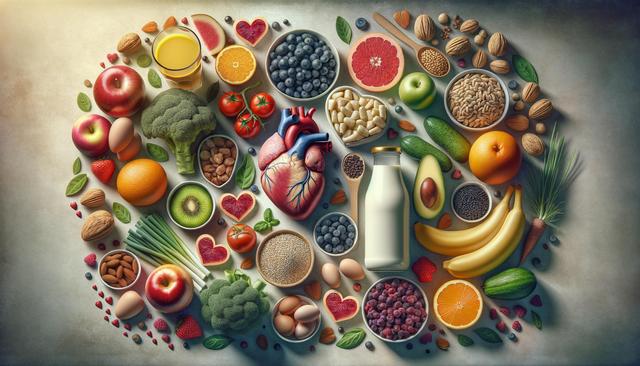Why Diet Matters for Heart Health
The food choices we make each day directly impact the health of our heart. Diets rich in whole, nutrient-dense foods can reduce the risk of cardiovascular diseases, help manage blood pressure, and keep cholesterol levels in check. On the other hand, diets high in processed foods, trans fats, and added sugars may contribute to plaque buildup in arteries and increased heart disease risk. Understanding which foods support heart function is a key step in leading a healthier life.
Incorporating heart-healthy foods into your daily meals doesn’t require a drastic lifestyle overhaul. Instead, it’s about making consistent, informed choices. Opting for fresh produce, healthy fats, lean proteins, and whole grains can create a supportive environment for your cardiovascular system. These nutrient-rich foods support overall circulation, maintain healthy blood vessels, and supply essential vitamins and minerals that contribute to heart function.
Making these changes can also influence other lifestyle factors such as weight management and energy levels. When you feel better physically, it becomes easier to stay active and maintain a balanced routine, further contributing to long-term heart health.
Leafy Greens and Vegetables
Leafy green vegetables like spinach, kale, and Swiss chard are loaded with vitamins, minerals, and antioxidants. They are especially rich in vitamin K, which helps protect arteries and promote proper blood clotting. These greens also contain dietary nitrates, which have been shown to reduce blood pressure and improve arterial function.
Incorporating leafy greens into your diet can be as simple as adding them to:
- Salads
- Soups
- Stir-fries
- Smoothies
Other vegetables that support heart health include broccoli, carrots, and bell peppers. These are high in fiber and provide essential nutrients without adding excessive calories, making them ideal for heart-conscious meals. The fiber content in vegetables contributes to cholesterol reduction by helping to remove excess LDL cholesterol from the bloodstream.
Whole Grains and Fiber-Rich Foods
Whole grains such as oats, brown rice, quinoa, and barley offer a wealth of heart-health benefits. They are a significant source of dietary fiber, particularly soluble fiber, which helps manage cholesterol levels. Eating more whole grains is linked to a reduced risk of coronary heart disease.
Some fiber-rich foods to consider adding to your meals include:
- Whole grain breads and pastas
- Steel-cut oats
- Lentils and beans
- Chia seeds and flaxseeds
Unlike refined grains, whole grains retain their bran and germ, which contain most of the grain’s nutrients. They also help regulate blood sugar levels and support weight management—two important factors in maintaining heart health. Choosing whole grains over processed alternatives is a practical and effective way to enhance your diet for long-term cardiovascular support.
Omega-3 Fatty Acids and Healthy Fats
Omega-3 fatty acids are essential fats that your body cannot produce on its own. They are known for their ability to reduce inflammation, lower triglyceride levels, and decrease the risk of arrhythmias. Fatty fish such as salmon, mackerel, and sardines are excellent sources of omega-3s and are often recommended for heart-supportive eating plans.
Other sources of healthy fats include:
- Avocados
- Olives and olive oil
- Walnuts
- Almonds
These plant-based fats contain monounsaturated and polyunsaturated fats, which can help lower LDL (bad) cholesterol while increasing HDL (good) cholesterol levels. Including a variety of healthy fats in your meals helps maintain balanced cholesterol levels and supports overall cardiovascular health. It’s important to moderate intake, as fats are calorie-dense, but choosing the right kinds of fats makes a meaningful difference.
Berries, Fruits, and Heart-Supportive Snacks
Berries such as blueberries, strawberries, and raspberries are rich in antioxidants like anthocyanins, which have been associated with reduced blood pressure and decreased inflammation. These small fruits pack a nutritional punch and are an excellent snack or topping for cereal and yogurt.
Other heart-healthy fruits include:
- Apples – high in fiber and polyphenols
- Bananas – a good source of potassium, which helps control blood pressure
- Oranges – rich in vitamin C and flavonoids
Snacking can also be heart-conscious. Instead of processed options, choose:
- Raw nuts
- Fresh fruit slices
- Vegetable sticks with hummus
- Whole grain crackers with avocado
These snack options not only satisfy hunger between meals but also support your cardiovascular system with valuable nutrients. Keeping healthy snacks within reach makes it easier to avoid less beneficial choices and maintain your health goals.


